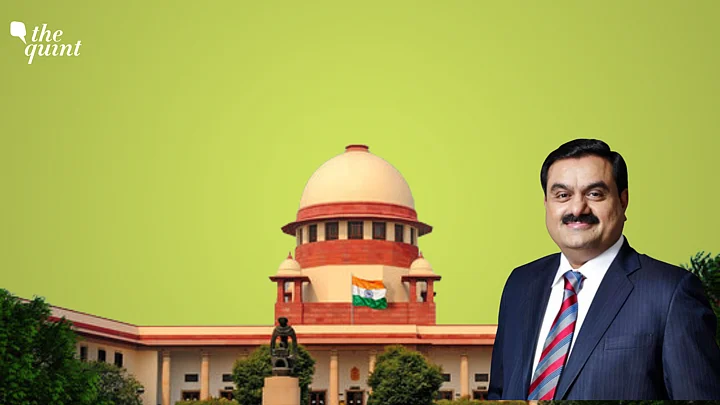The Supreme Court on Wednesday, 3 January, dismissed Public Interest Litigations (PILs) seeking the transfer of probe from the Securities and Exchange Board of India (SEBI) to an alternative agency into allegations made by Hindenburg Research against Adani Group of companies.
A bench comprising of Chief Justice of India (CJI) DY Chandrachud, with Justices JB Pardiwala and Manoj Misra, said that there is no ground on which it can direct SEBI to revoke its regulations, reported Bar and Bench.
"No valid ground invoked (in this case) for us to direct SEBI to revoke its regulations and the current regulations are tightened by amendments in question," the apex court said.
It further added, "Investigative reports by press can act as inputs for SEBI but cannot be taken as credible evidence or a proof of regulatory failure by SEBI and it cannot cast doubt on the investigation being carried on by a statutory body."
The bench further ruled that the petitioners "must put forth strong evidence to show that the investigative agency (SEBI) acted in a biased manner," in order for it to use its power to transfer the investigation to some alternative agency.
Hence, it directed SEBI to continue with its probe and complete it within three months, the report added.
The petitions were filed in the SC by Advocates Vishal Tiwari, ML Sharma, Congress leader Dr Jaya Thakur, and activist Anamika Jaiswal, seeking a court-monitored probe into the matter, reported LiveLaw.
What Did the Hindenburg Report Alleged?
In its report, Hindenburg Research had claimed that the Adani Group had ties to offshore shell companies for alleged money laundering and stock market manipulation related purposes.
When the case reached the top court, it asked SEBI to investigate:
If there has been a violation of Rule 19A (related to maintenance of minimum public shareholding) of the Securities Contract Regulation Rules
If there has been a failure to disclose transactions with related parties and other relevant information which concerns related parties
If there was any illegal manipulation of stock price
At the same time, the court had also set up an expert committee, headed by retired Supreme Court Justice AM Sapre, to review the regulatory mechanism.
The committee submitted its report in May 2023, saying that prima facie it would not be possible to conclude that there have been regulatory lapses by SEBI in the case. Read more about committee's findings here.
(With inputs from Bar and Bench.)
(At The Quint, we question everything. Play an active role in shaping our journalism by becoming a member today.)
